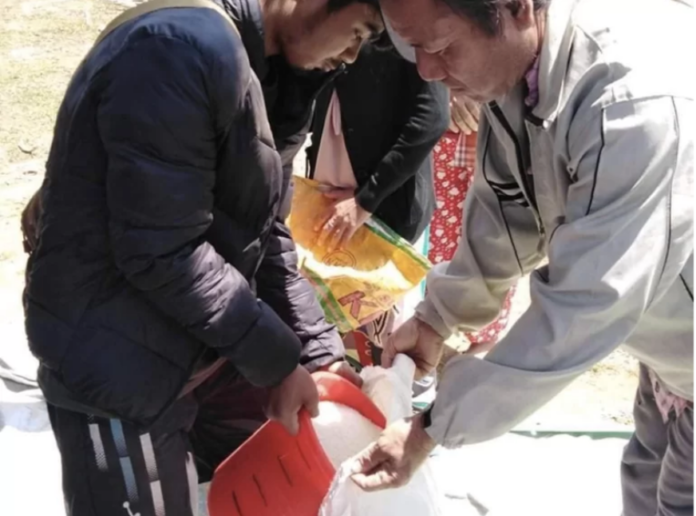Humanitarian assistance to internally displaced people (IDPs) in Karenni (Kayah) State has dwindled significantly in the nearly two years since the military coup, according to Banya, spokesperson for the Karenni State Consultative Council (KSCC) Humanitarian Committee.
“Their rations ran out more than a year after the coup. What they brought with them is almost gone. Their savings are also almost gone. So they are becoming more and more dependent on international aid. At the same time, international aid is getting less and less. Especially the aid of the Karenni and Myanmar people from abroad has decreased a lot. We have to accept that as the truth,” Saya Banya said.
Between 2021 and 2022, financial aid from people at home and abroad for the peopel displaced by the internal conflict is strong, he said.
IDPs have already had to sell their belongings for thier survival, but the longer the war goes on, the more difficult it becomes for them, and international aid is also dwindling.
Due to the decrease in humanitarian aid, most IDPs in Karenni State are facing food shortages, while some have to borrow rice for cooking or reuse stale rice.
A woman living in an IDP camp north of Demoso Township said, “We have to borrow rice from someone who has it for a while. We have to divide it among us. Some people still have rice that has gone a little sour now, but we have to cook it and eat it. We have to use the rice sparingly. Also, we have to rinse the rice four or five times before cooking it. But it is still fine. Whether it is bitter or sour, we eat it as long as it is called rice. When those who have enough rice share it with us, we just cook and eat it.”
According to reports, there are about 900 people living in the IDP camp who have to share the rice among themselves because they have no jobs to earn money and have not received donations for three months.
The previous donors donated rice, cooking oil, salt, water, clothes and tarpaulins, but since then they have not received any donations, although they have tried to contact the donors, she said.
Although the respective committees of the IDP camp, including Shwe Taung Tan, Thebyu Taung and Ree Khee Bu, have tried to contact potential donors, they have not been able to solicit donations for three months, she said.
Those helping the IDPs are concerned that they could run out of food rations if they do not receive help.
“When we talk about food rations, it’s mostly about rice. Some people have donated rice, cooking oil and chickpeas, and maybe a few other things like blankets and tarps. Right now, rice is the most important thing,” said Ko Peter, who is helping IDPs in Hpruso Township.
International organizations such as the World Food Program are expected to assist the IDPs, but in areas where there are IDPs, they may face difficulties because they have to deliver the aid under the supervision of the military council, Saya Banya said.
“Whether it’s UN or ASEAN activities, the reality is they can’t bypass the junta administration. On the ground, 90-95 percent of the IDPs are in the areas under the people’s administration. Therefore, the IDPs are likely to face more difficulties because these international organizations don’t have direct access to them,” he explained.
Saya Banya went on to say that transportation difficulties combined with restrictions on the movement of food and medical supplies, as well as strict controls along distribution channels by the military regime, have hampered the delivery of humanitarian aid.
Following the military coup, nearly 200,000 people have been displaced by the armed conflict in Karenni State, and they are concerned that there will be food shortages as they depend on donors.
Sent by Kantarawaddy Times.

